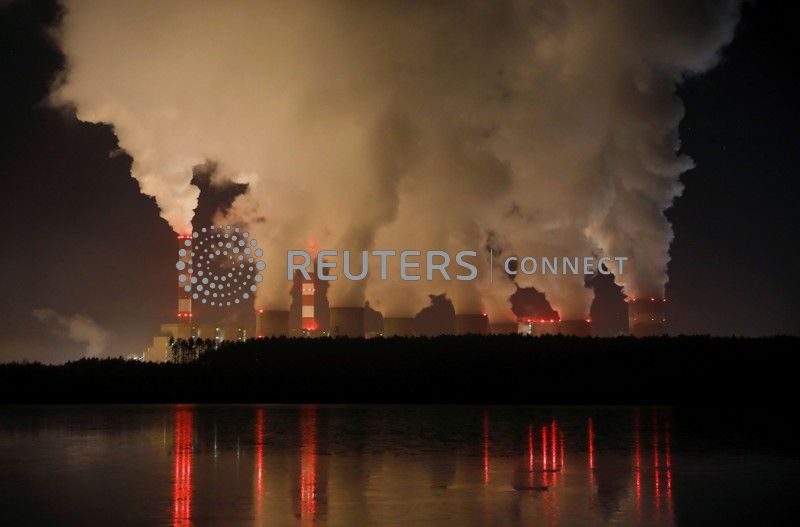LONDON (Reuters) – The value of traded global markets for carbon dioxide (CO2) allowances soared 250 percent last year to a record high of 144 billion euros ($164 billion), analysts at Refinitiv said on Wednesday.
The overall figure was pushed higher by the soaring cost of carbon permits in Europe’s Emissions Trading System, (ETS) which more than trebled last year from 8 euros a tonne to around 25 euros.
“In Europe we attribute the price rise mainly to anticipation of the Market Stability Reserve that came into effect in January 2019: it will significantly tighten the supply,” the analysts said in an annual global market report.
The European Emission Trading System (ETS) charges power plants and factories for every tonne of carbon dioxide they emit.
The ETS has suffered from excess supply since the financial crisis, but this will be addressed by new measures including the Market Stability Reserve, which from this year will remove some surplus allowances from the market.
“We see 2018 as an outlier when it comes to price increase in one single year, and do not expect a repetition of such steep path in 2019,” said Anders Nordeng, senior carbon analyst at Refinitiv and a contributor to the report.
A total of 9 billion carbon permits were traded globally in 2018, up 45 percent on the previous year, the analysts said.
The European market accounted for 90 percent of the total value of globally traded carbon permits, with North American trading schemes making up 9 percent, the report said.
Volumes and traded value grew in North America in both the Western Climate Initiative (WCI), and the Regional Greenhouse Gas Initiative (RGGI), “largely in anticipation of new rules in both trading systems for when they enter new trading periods starting in 2021.” the analysts said.
The emerging markets in China and South Korea still see very limited trading, despite the fact that their emission trading systems cover vast emissions volumes, the analysts said.




